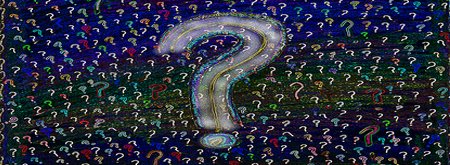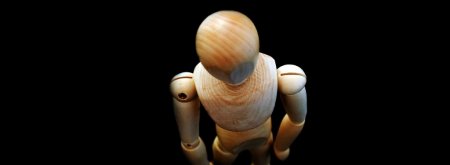The God Who Wasn't There
In an interview with Richard Dawkins in his second commentary, Dawkins makes the following statement:
Science, scientific reason, the Enlightenment, rationalism, are in their way powerful weapons against religion and all other forms of superstition. Those people who are well enough educated to understand science and reason tend to be the ones who have dropped religion. And so, by spreading science and rationality we would be combating religion and all other forms of superstition.... it's worth noticing that if you take the elite of American scientists, and one measure of that that’s [sic] being taken as those being elected to the National Academy of Sciences, these are the cream American scientists, more than 90% of them do not hold any supernatural religious belief. So, among the best American scientists, religion is almost dead. And that’s a very encouraging sign.
This is strong rhetoric from Dawkins who is on a crusade against non-atheistic science. Elsewhere Dawkins comments, “It is absolutely safe to say that if you meet somebody who claims not to believe in evolution, that person is ignorant, stupid, or insane (or wicked, but I’d rather not consider that).”[80]
The facts speak contrary to Dawkins’ grandstanding. Evolution is in a period of serious crisis and it is becoming apparent to all who remain informed of the issues that there is a closed-mindedness, even an anti-intellectual climate,[81] embedded in the communities in which Dawkins roams. Evolution is not the self-evident axiom that Dawkins and others like him preach. Consider the following small sampling from a plethora of comments by prominent scientists:
“[There] is for me powerful evidence that there is something going on behind it all. The impression of design is overwhelming.”[82]
Paul Davies, Ph.D., Templeton Laureate
“Astronomy leads us to a unique event. A universe which was created out of nothing, and delicately balanced to provide exactly the conditions required to support life. In the absence of an absurdly-improbable accident, the observations of modern science seem to suggest an underlying, one might say, supernatural plan.”[83]
Arno Penzias, Ph.D., Nobel Laureate who confirmed the Big Bang Theory
“An honest man, armed with all the knowledge available to us now, could only state that in some sense, the origin of life appears at the moment to be almost a miracle, so many are the conditions which would have to be satisfied to get it going.”[84]
Francis Crick, Ph.D., Nobel Laureate who discovered DNA
“I’m a person who says in this book [Human Diversity] that we don’t know anything about the ancestors of the human species. All the fossils which have been dug up and are claimed to be ancestors – we haven’t the faintest idea whether they are ancestors....[85] Despite the excited and optimistic claims that have been made by some paleontologists, no fossil hominid species can be established as our direct ancestor”[86]
Richard Lewontin, Distinguished Prof of Zoology, Harvard Former President of the Society for the Study of Evolution,
Geneticist, Marxist, Atheist
“We paleontologists have said that the history of life supports [the story of gradual adaptive change], all the while really knowing that it does not.”[87] “No wonder paleontologists shied away from evolution for so long. It never seems to happen.... Evolution cannot forever be going on somewhere else. Yet that’s how the fossil record has struck many a forlorn paleontologist looking to learn something about evolution.”[88]
Niles Eldridge, PhD, Paleontologist, American Museum of Natural History
“Indeed, again and so far as I know, no one has yet produced a plausible conjecture as to how any of these complex molecules might have evolved from simple entities.”[89]
Antony Flew, Ph.D. Philosopher and Former Atheist
“Is Archaeopteryx the ancestor of all birds? Perhaps yes, perhaps no: there is no way of answering the question. It is easy enough to make up stories of how one form gave rise to another, and to find reasons why the stages should be favoured by natural selection. But such stories are not part of science for there is no way of putting them to the test.”[90]
Colin Patterson, Senior Paleontologist, British Museum of Natural History.
“The known fossil record fails to document a single example of phyletic [gradual] evolution accomplishing a major morphologic transition and hence offers no evidence that the gradualistic model can be valid.”[91]
Steven M. Stanley, Ph.D., Professor of Paleobiology, Johns Hopkins University
“We conclude – unexpectedly – that there is little evidence for the neo-Darwinian view: its theoretical foundations and the experimental evidence supporting it are weak.”[92]
Richard Coyne, Ph.D., Dept. of Ecology and Evolution, University of Chicago
Michael Behe, Ph.D., Dept. of Biochemistry, Lehigh University, points out that the Journal of Molecular Evolution is run by a board of more than fifty prominent scientists in the field, a dozen of them members of the National Academy of Sciences. Over 2,500 papers have been written on various aspects of molecular evolution since the journal was started in 1971. Behe writes,
none of the papers published in JME over the entire course of its life as a journal has ever proposed a detailed model by which a complex biochemical system might have been produced in a gradual, step-by-step Darwinian fashion.[93]
Physicists Dyson, Kleban, and Susskind of Stanford and MIT wrote a paper in 2002 titled “Disturbing Implications of a Cosmological Constant.” In it, the scientists discuss the extreme difficulties of having life anywhere in our universe aside from a miracle. They conclude that our understanding of physics must be wrong.
The Discovery Institute has a list of more than 400 scientists who maintain serious doubts over evolutionary theory. It is clear that attempts by Dawkins and others to state simply that educated people accept evolution and reject religion are unfounded.
References
[80] New York Times, 4/9/89, sec. 7, p. 34.
[81] For a good example of censorship of a peer-reviewed scientific journal article written by a Cambridge educated biologist, see http://www.4truth.net/site/apps/nl/content3.asp?c=hiKXLbPNLrF&b=784461&ct=982987.
[82] Paul Davies, The Cosmic Blueprint: New Discoveries in Nature’s Creative Ability to Order the Universe (New Jersey: Simon & Schuster, 1988), 203.
[83] H. Margenau and R.A. Varghese, eds., Cosmos, Bios, and Theos (La Salle, IL: Open Court, 1992), 83.
[84] Francis Crick, Life Itself: Its Origin and Nature (New Jersey: Simon & Schuster, 1981), 88.
[85] Harper’s, 2/85, 61.
[86] Richard Lewontin, Human Diversity (New York: W. H. Freeman and Company, 1995), 163.
[87] Time Frames: The Rethinking of Darwinian Evolution and the Theory of Punctuated Equilibria (New Jersey: Simon & Schuster, 1985), Appendix.
[88] Niles Eldridge, Reinventing Darwin: The Great Debate at the High Table of Evolutionary Theory (Wiley, 1995), 95.
[89] Antony Flew, In a personal letter to Gary Habermas.
[90] Harper’s, 2/85, 49.
[91] Steven Stanley, Macroevolution, Pattern and Process (W. H. Freeman & Co., 1980), 39.
[92] H. A. Orr and J. A. Coyne, “The Genetics of Adaptation: A Reassessment,” in American Naturalist, 140, 726.
[93] Michael J. Behe, Darwin’s Black Box: The Biochemical Challenge to Evolution (New York: The Free Press, 1996), 176.
© 2005 Mike Licona
Used on bethinking.org by the kind permission of Mike Licona.
Other resources by Mike Licona are available from his website risenjesus.com.



